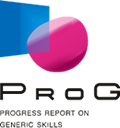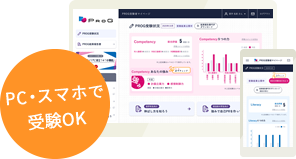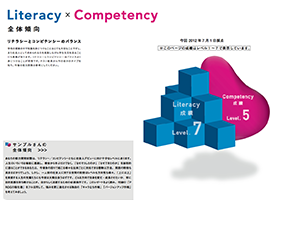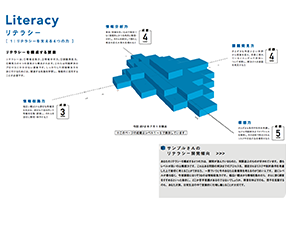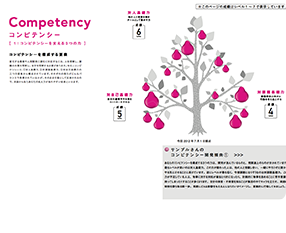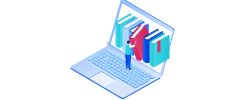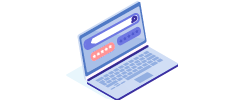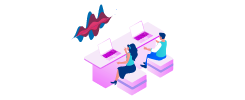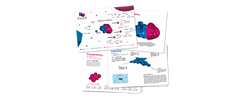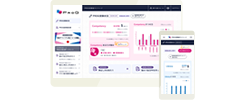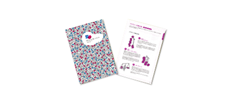Test Overview
PROG is an assessment program jointly developed by KAWAIJUKU and RIASEC to support the growth of generic skills. It measures and develops generic skills, which are the general abilities, attitudes, and orientations required in society regardless of major or specialization. The test measures Literacy and Competency from two perspectives, allowing you to grasp your current situation objectively.

What we Measure
Literacy measures the ability to use knowledge to solve problems by dealing with new or previously inexperienced issues in four of six categories, including the ability to gather information and analyze information.
Competency also confirms the decision-making characteristics and behavioral styles acquired to respond skillfully to surrounding situations.
-


The ability, for the purpose of problem identification and solution, to evaluate and choose sources of information from a broad viewpoint, collect and select information using appropriate methods, organize and classify relevant themes 
The ability to organize and analyze information objectively and in various ways without unfounded assumptions or speculation and to structure and synthesize information to arrive at the fundamental argument 
The ability to view the issue from diverse and broad perspectives, consider underlying mechanisms and causes, and identify problems that need to be solved 
The ability to form strategies for the process of problem resolution that consider various conditions and constraints and for dealing with the possible risks that are identified -


- Relating with others
- The ability to develop trust and build personal relationships, and actively take the initiative to build relationships with many people by accepting diverse ideas and thinking about things from the perspective of the other person
- Collaborating with others
- The ability to work on problems by sharing information with others, motivating and cooperating with them, and boosting the enthusiasm of the team and junior members by guiding the leadership position
- Team management
- The ability to listen to different opinions proceed constructively with negotiation and discussion while also asserting your own opinion

- Self control
- The ability, even in stressful situations, to take a forward-looking approach based on an understanding of your own feelings and emotions, and then tackle the difficulties
- Self confidence
- The ability to understand your own characteristics (strengths and weaknesses), have confidence in yourself, and seize opportunities to improve yourself
- Behavior control
- The ability to persistently and responsibly work on things to the end while creating your own rules and routines / The ability to work on matters continually you feel are necessary for you

- Identifying problems
- The ability to collect information from various angles using appropriate information sources and methods, comprehend phenomena and facts from a broad perspective, consider their mechanisms and causes, and identify problems to be solved
- Planning solutions
- The ability to formulate effective plans, by setting goals for problem solving and thinking about risks that many arise in the process up to a solution, and methods of dealing with those risks
- Implementing solutions
- The ability to act on your own toward achieving goals, and to correct and execute actions quickly while adjusting overall activities to suit the predicted future
Results Report
Test results are fed back to each individual in an easy-to-understand, well-designed format. This provides a visual understanding of current strengths, weapons, weaknesses, and weaknesses. Feedback comments also help takers recall past experiences and deepen their self-understanding. We also provide educational materials that can be useful for skill development.
